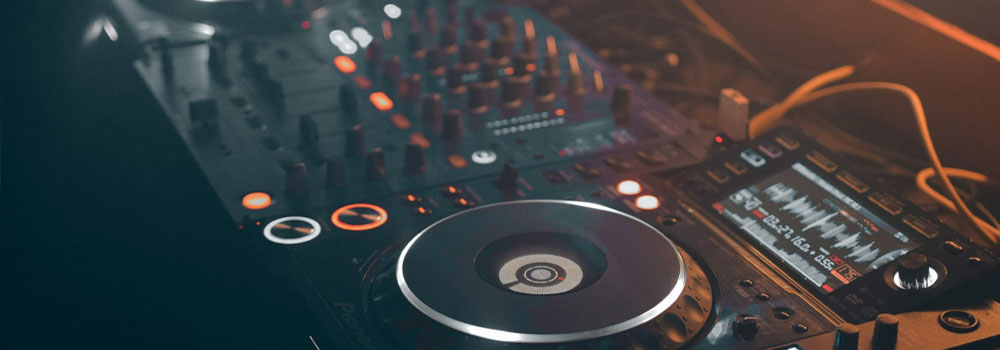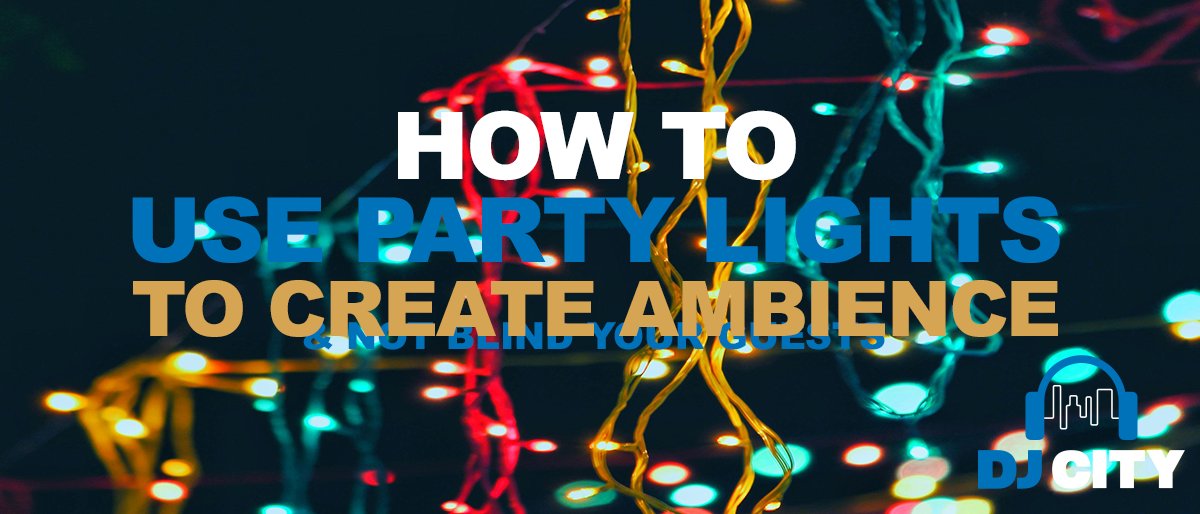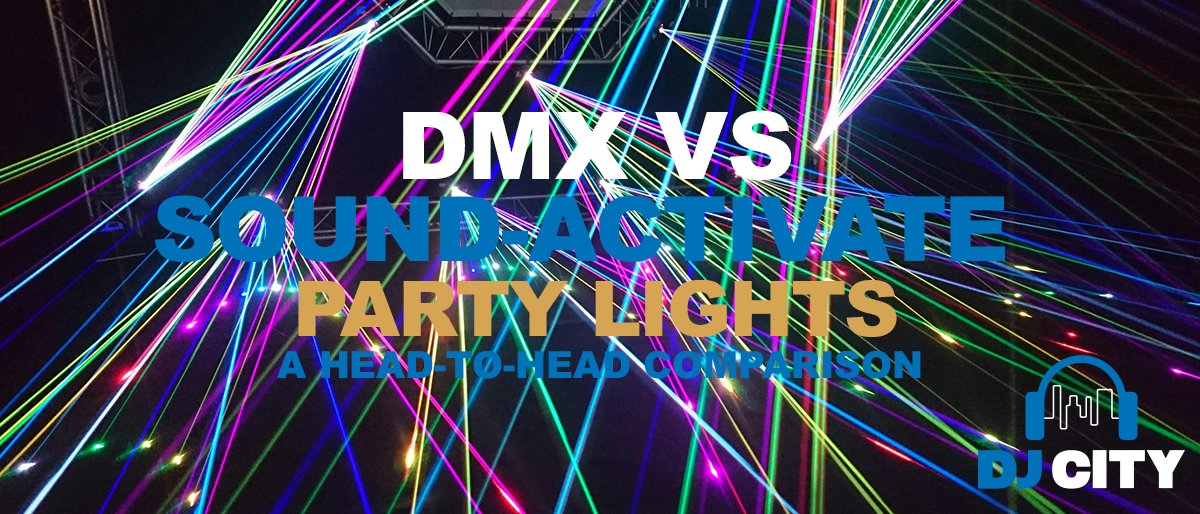
How to Price Your Mobile DJ Services
If you’re gearing up to DJ your first paid mobile DJ gig, one of the biggest uncertainties for new DJ’s is prices. How much should you charge for your mobile DJ services? Unlike almost everything else in the industry, there’s no set standard for pricing.
In this article, we’ll cover all the things you need to consider before pricing up your mobile DJ gig. Giving you everything you need so you can make an educated decision on how much to charge.
- What’s the average cost?
- Why should you charge so much?
- Should you work for free?
- Covering your costs
- What else is there?
- Do your research
- Should you charge differently for different events?
- More time, More Money
- The Final Say
What does the average DJ cost?
As we touched on before, there’s no magic number to charge for your DJ services. That goes for whether you’re going to be DJing at a party, wedding, or another kind of event. But how much are other mobile DJs charging? Typically, the numbers sit anywhere from $50 to $200 an hour. But can go even higher than that if you’re getting an in-demand DJ. If you’re charging per event, from a few hundred to a few thousand. But keep in mind prices will vary for DJs offering different packages for different events. For instance, it makes sense why it would cost more for a wedding DJ who’s providing a service with higher quality DJ Equipment, Lighting, Speakers, and so forth.
If you’re just getting started, it’s likely that you don’t have the best of the best in terms of setup and equipment. So again, it probably makes sense not to charge the same premium rate as experienced DJs with a full kit of equipment. But you also don’t want to undercut yourself either.
Why should you charge so much?
A question you might be asking yourself, you love what you’re doing, and it barely even feels like work. So why should you charge so much? To put it simply, you’re offering a professional service with a skill that comes from hours of practice, training, and experience to master. Not to mention the amount of money you’ve likely spent from having an expensive hobby to begin with!
Sure, there are countless trash DJs about in the industry, but it’s no different to any other line of work that you’ll find flooded with mediocrity. These guys might charge a lesser amount, but you might be surprised how many people are willing to pay if you’re going to deliver a quality service. On that note, charging significantly less than your competitors is only hurting your fellow DJs in the industry by devaluing the worth of the job. You’re also going to find it that much harder to make mobile DJing a full-time gig, or at least make it worth your time pursuing as a side-hustle.
Should you work for free?
This one is heavily debated online and you’re sure to find arguments both for and against working for free. The same also goes for offering “mates rates” and cheap DJ prices to your family and friends. So should you do it? We say NO.
Some will argue that doing gigs for free in the beginning will work as a good way to get your foot in the door for future gigs. But at the same time, you’re also devaluing your work, the amount of equipment you’ve had to acquire over the years, as well as ignoring all the overhead costs involved in performing a gig that can often get overlooked.
So as much as you love your family and friends, and want to support them, we’d recommend staying away from those free or heavily discounted gigs. This also helps you to maintain consistency within your pricing, so you won’t have people feeling ripped off if you offer one person a price, then someone else another.
Covering your costs
Let’s talk about those overlooked overhead costs that we mentioned before. If you’re a mobile DJ business, chances are you’re running your company straight out of your house or car. So unlike many other professions, you won’t be renting an office space, and you won’t have all those related costs at the end of it. But I guarantee there are going to be so many overhead costs relating to your DJ business that you might not have considered. You’ve got your obvious ones like your DJ Controllers and equipment that you have to carry from gig to gig, and the duration of the event itself. But what else are you forgetting?
- DJ Controllers
- Speakers
- Lighting
- Effects/Smoke Machines
- Business Costs
- Equipment Insurance
- Petrol
- Car servicing and maintenance
- Domain name and email hosting
- Website Design & Hosting
- Other marketing costs (Logos, Business Cards, Social Media Ads)
- Photography & Videography
- Laptop/Computer
- Backups/USBs/Hard Drives
- Uniform if you have one
- Music Purchases from Beatport, iTunes, etc.
- DJ Pool subscriptions
- Music Streaming Subscriptions ie. Spotify, Apple Music
- Internet Connection & Phone
Seems like a lot more overhead now doesn’t it? This is why you need to charge a reasonable amount, so you can be sure you’re covering all the costs of being a mobile DJ. Keep in mind, these are just the first things off the top of my head. So think long and hard, and you’ll probably think of a few more that are already adding extra costs to the price of your DJ gigs.
What else does your rate include?
On top of all those listed expenses, what else do your DJ prices have to accommodate for? And how do you explain to your clients why you charge what it is you charge for an event? Especially knowing there’s plenty of low-budget DJs that have probably already quoted for half of your proposed price.
Say you’ve been hired for a wedding in which your services will be required for a total of four hours. Your client isn’t just paying for your equipment and your time during those four hours.
They’re also paying for the time it takes you to plan and prepare your sets to match the bride and groom’s music tastes; any meetings or venue walkthroughs you did beforehand; your time spent traveling to and from the event; and your setup and pack up time. Setting up alone can often take upwards of an hour if you’re getting there earlier to make sure everything’s running smoothly.
So while your gig might only be a four-hour job, there are so many other uncounted hours that go into preparing for the event! Keep that in mind!

Do your research!
Now you know what exactly goes into the cost of a DJ, but what if you still don’t know what price to charge? Our average figures listed earlier are round-about figures that are going to differ greatly depending on the services you’re offering, and where you’re located.
So in order to get some more accurate info on pricing and what others are charging, you’re going to have to do some research.
Fellow DJs
If you’re getting into DJing, there’s a good chance you know a DJ, have a friend who’s a DJ, or have learned to DJ off someone you look up to. You might even be in an online forum or community with a bunch of like-minded people all wondering the same thing. Talking money for whatever reason has always been a bit taboo, but there’s no harm in asking for advice directly from these types of people. Most of the time they’ll happily share their pricing structure with you so you can get an idea of whether you’re charging too much, or too little for your events.
Married Friends
Alternatively, if you don’t know any DJs you can go to for advice, then it might be worth asking your recently married friends. They likely hired a wedding DJ of their own, and you might even get lucky if they happen to still have their DJs pricing sheets on file. Even if they just tell you how much they paid, and how long their event was. This can be extremely useful information to have to help you understand pricing. The more numbers you have to compare, the easier it’s going to be to set your own fair pricing structure.
Google is your friend
Another way to work out what your competitors are charging is to google them! You’ll find some mobile DJs don’t publicly display any pricing information about their services online. While others will have all the information easily available on their pricing pages. This makes it so much easier to do your research and work out the going rate!
Fake a wedding
If you had no luck finding any pricing on your competitor’s websites, there’s still another way. One of the oldest tricks in the book is to approach your competition pretending to be a potential client. You create a fake email address, hit up some DJs, and ask them directly for a price for your wedding. Because for this purpose; your name’s Karen, you’re getting married, and you want a few quotes before you decide who you want to go with.
This is also helpful for getting an idea of how fellow mobile wedding DJs are formatting their emails, quotes, and proposals. So you’ll be able to get a good idea of what other DJs are doing right, and up your game so you stand out from the crowd.
Different event, different DJ Price?
Should you charge differently for different events? Depending on the services you’re offering, you might be tempted to charge more or less for different events. For the most part, we suggest you keep your pricing structure consistent across the board no matter what the mobile DJ gig you’re performing at is. It’s more professional, and you won’t have people feeling short-changed when they find out you charged them double you did for someone else.
More time, more money
Sometimes, inevitably, your mobile DJ gigs are going to run overtime. So what do you do when the wedding or event runs half an hour overtime. Do you let it slide? Do you ask for more money?
Before you go into any professional gig, you should have already agreed on what happens when the event runs overtime in your contract. Let’s pretend you haven’t got this sorted, and you’ve quoted a set price for an event that’s expected to run for 4 hours. We strongly suggest you have a clause within your contract that explicitly states that when the agreed-upon time elapses, you charge x hourly rate for any additional time.
Events run overtime all the time, and your time is valuable. So it’s important you cover yourself and both parties know the costs when something like this happens.
The Final Say
Hopefully, this article will have given you the stepping stones you need in order to figure out your pricing and get your first paid gig as a mobile DJ. At the end of the day, working out the perfect price for your services is always going to take some trial and error. So don’t be afraid to play around and adjust your pricing as you see fit.
You also won’t be charging a premium price when you just start out. So again, make sure you continue to bump your prices up over time as your mobile DJ business grows. One more tip for mobile DJs, try and book the clients and job types you actually want to work at, it will make it so much more enjoyable while you’re on the clock!






